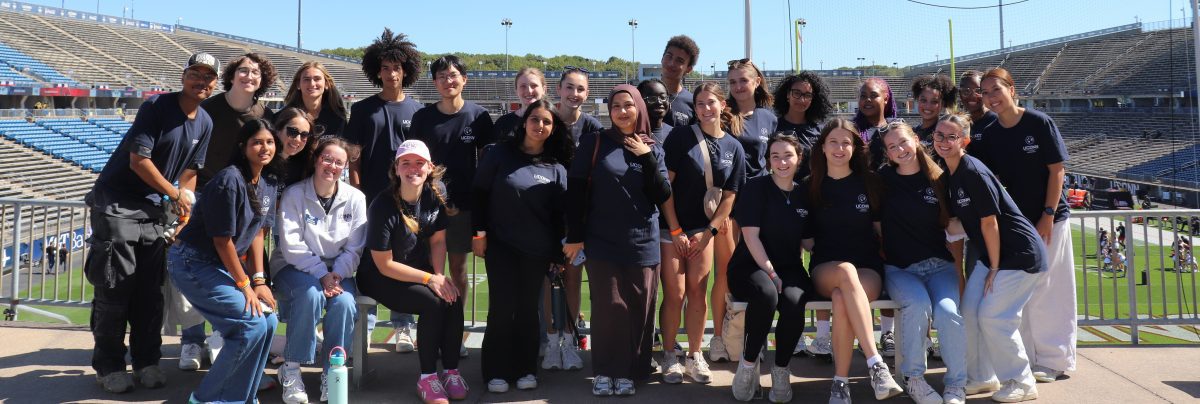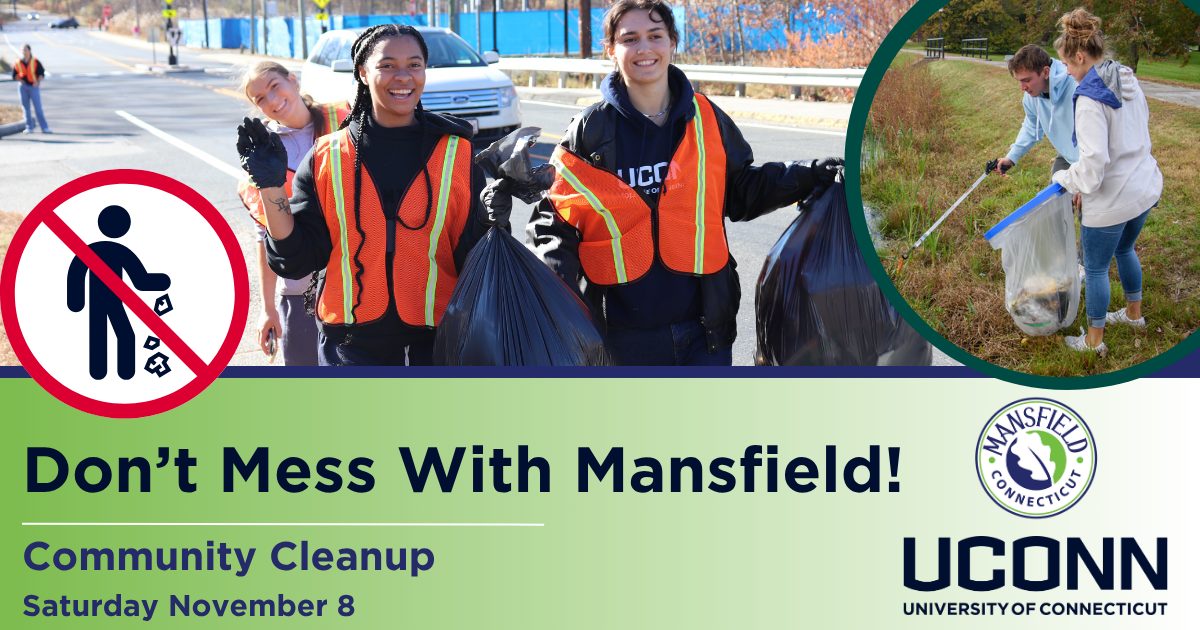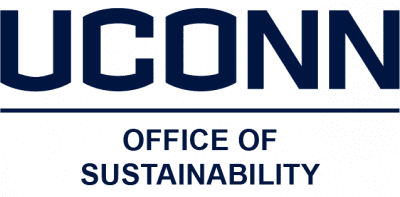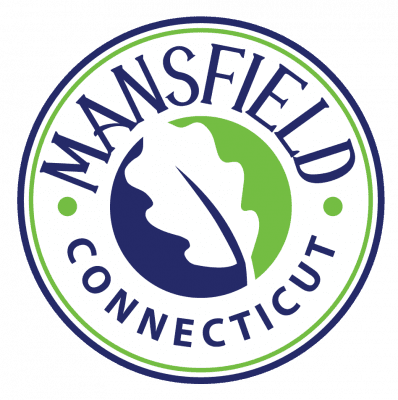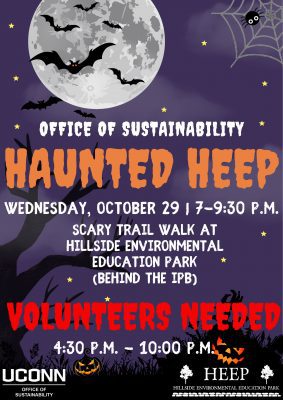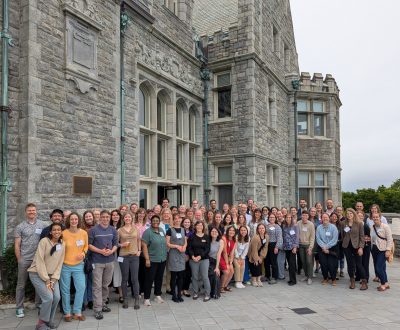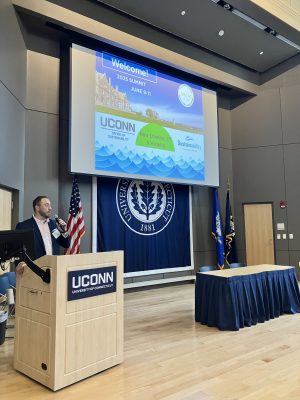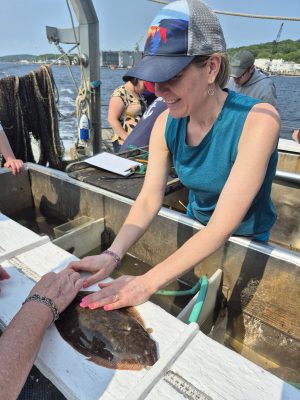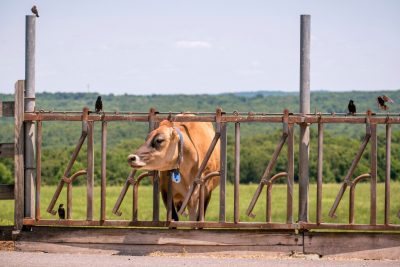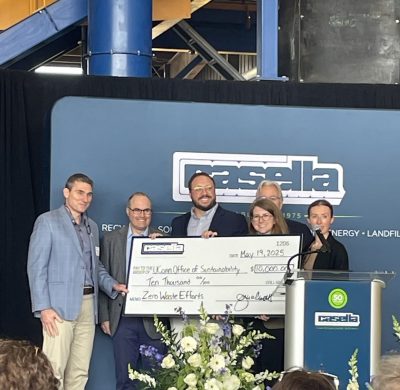Special Event Coverage by Ava Naclerio, Sustainability Outreach Intern
When many people hear the word “sustainability”, they may think of tree-huggers, clean-up volunteers, and environmental science students, but sustainability is much broader than planting trees and picking up litter and includes more professional fields than you could ever imagine. In 2021, the Office of Sustainability held its first ever Green Careers Panel with the goal of exposing students to different opportunities and career paths in sustainability that they might’ve never considered. February 2 marked the sixth annual panel, and as an attendee, I can confidently say it opened my eyes to a whole new world… a green one, of course. 
This event was thoughtfully designed to address any interest or question a student looking to pursue a career in sustainability could have. It began at 3:00 pm with tabling featuring clubs and organizations such as Sustainable CT, EcoHusky, the Department of Earth Sciences, and The Green Garden. Here, students learned about different ways they can get involved with sustainability on campus in addition to various internship, fellowship, and educational opportunities.
Then, at 4:00 pm, everyone moved into a McHugh classroom to hear from a group of early career panelists from a diverse range of academic backgrounds such as engineering, political science, and geography.
To start, panelists Thomas Bonitz, geography graduate student, and Deniz Girgin, political science graduate student, shared advice on how to get involved in research. They emphasized the importance of taking the initiative to approach professors that have research that interests you in addition to being academically interdisciplinary. Sustainability has great overlap with various fields, and being conscious of that and actively cultivating one’s knowledge can be a great aid in research and form valuable perspectives.

Another main point of the discussion surrounded sustainability in management and entrepreneurship. This was a perfect topic for UConn engineering undergraduate students Lucille Ledesma and Audrey Larson. Audrey and Lucille jointly began and run the program, Seeds2Sustain, which supports UConn students experiencing food insecurity by providing instruction on cooking and hydroponic farming. Students even get to keep their mini hydroponic farm to keep in their dorm room after completing the program! They led the conversation and offered insight into the development of management skills and their applications in environmental programming and sustainability. Lucille spoke of adaptation as an essential skill for managers and how learning servant leadership has supported her in various academic and professional facets.
Looking into the future, current undergraduate engineering student and OS Intern, Morgan Randall, shared her hopes of working another year with the OS and continuing to implement sustainable education into campus life. She also hopes to work with remediation after graduating and finding ways to combat pollution and contamination in sustainable ways.
When asked about work-life balance, the panelists agreed that if you love what you do, it doesn’t feel like work. Audrey highlighted the idea that personal and social time isn’t always about quantity, but the quality of the activity and people you spend the time with.
As early career panelist Lucille reminded everyone “sustainability is a mindset”. Sustainability is not an abstract concept strictly for governments and large companies to follow (though, they should), but an inclusive space that anyone can join by having the motivation to fight for a better future and making even the smallest changes to their lifestyle. But, what counts as a sustainable lifestyle change? Sustainability Intern, Brenny Alcantara, posed this exact question to the panelists, and here were some of their suggestions: thrifting and avoiding consumerism, turning the lights off before you leave a room, walking and biking places more, avoiding unnecessary printing, limiting meat consumption and AI use, and educating others.
The early career panel wrapped up with a meaningful discussion about involving more UConn community members in the sphere of sustainability and environmental science. The concern dictated that many people interested in sustainability are not likely to join because it feels like such a large commitment. Due to the sustainability community having such passion, it sometimes pushes newcomers away. To combat this, the Office of Sustainability hopes to continue to create inclusive and welcoming programming such as Haunted HEEP to introduce students to sustainability in an introductory manner, and hopefully spark further interest and involvement. Some easy ways to get involved is to attend your resident hall’s Sustainability Outreach Intern’s events such as tote bag painting, paint and plant, sewing, and more. Other ways include volunteering with organizations on campus or joining clubs such as EcoHusky.
Overall, the panel was a great experience for professionals, faculty, staff, and students alike. The Office of Sustainability hopes to see you at the Green Careers Panel next year!
